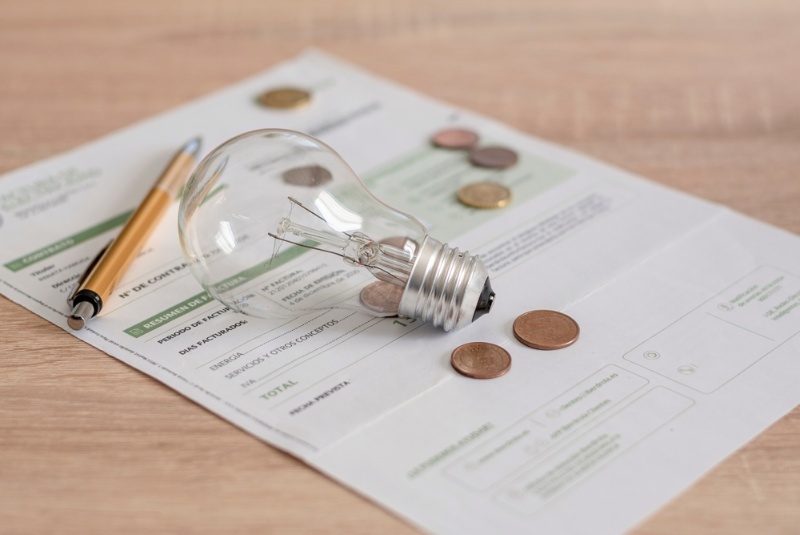Managing monthly expenses is crucial for maintaining financial stability and achieving your financial goals. By taking proactive steps to lower your bills, you can free up more money for savings, investments, or other priorities. This comprehensive guide provides practical tips for reducing your monthly expenses, helping you save money and improve your financial health without sacrificing your quality of life.
Assessing Your Current Expenses
The first step to lowering your bills is to assess your current expenses. Review your bank statements and categorize your spending to identify where your money is going. Look for patterns and areas where you might be overspending. Understanding your current expenses provides a clear picture of your financial habits and helps you identify opportunities for savings. Assessing your expenses ensures you have a solid foundation for making effective changes to your spending.
Creating a Budget
Creating a budget is essential for managing your finances and reducing monthly expenses. Start by listing all your sources of income and fixed expenses, such as rent, utilities, and loan payments. Next, account for variable expenses like groceries, entertainment, and transportation. Allocate funds to each category based on your financial goals and priorities. Regularly track your spending to ensure you stay within your budget. Creating a budget helps you control your spending, prioritize your expenses, and identify areas where you can cut back.
Reducing Utility Bills
Utility bills, such as electricity, water, and gas, can make up a significant portion of your monthly expenses. To reduce these costs, adopt energy-saving habits like turning off lights when not in use, using energy-efficient appliances, and setting your thermostat to an optimal temperature. Fixing leaks and using low-flow fixtures can help reduce water consumption. Additionally, consider comparing rates from different providers to find the most affordable options. Reducing utility bills helps you save money and promotes a more sustainable lifestyle.
Cutting Down on Subscription Services
Subscription services, such as streaming platforms, gym memberships, and magazine subscriptions, can add up quickly. Review all your subscriptions and determine which ones you use regularly and which you can live without. Cancel any services that are not essential or that you rarely use. Additionally, look for bundle deals or family plans that offer discounts for multiple services. Cutting down on subscription services ensures you only pay for what you truly value, reducing unnecessary expenses.
Lowering Grocery Bills
Grocery bills are a major part of most households' budgets. To lower your grocery bills, plan your meals in advance and create a shopping list to avoid impulse purchases. Look for sales, use coupons, and buy generic or store-brand items to save money. Buying in bulk for non-perishable items and preparing meals at home instead of eating out can also lead to significant savings. Lowering grocery bills helps you manage your food expenses more effectively and ensures you get the most value for your money.
Saving on Transportation Costs
Transportation costs, including gas, car maintenance, and public transit, can be substantial. To save money, consider using public transportation, carpooling, biking, or walking whenever possible. Regularly maintain your vehicle to ensure it runs efficiently and avoid costly repairs. Shopping around for affordable car insurance and refinancing your auto loan can also help reduce costs. Saving on transportation costs allows you to allocate more funds towards other financial goals.

Refinancing Loans and Credit Cards
Refinancing loans and credit cards can help lower your monthly payments and reduce interest rates. Research refinancing options for your mortgage, student loans, and auto loans to find better terms and lower rates. Consolidating high-interest credit card debt with a balance transfer to a card with a lower interest rate can also save you money. Refinancing loans and credit cards helps you manage debt more effectively and reduces the total amount you pay over time.
Negotiating Bills and Services
Negotiating bills and services can lead to lower monthly expenses. Contact your service providers, such as cable, internet, and phone companies, and ask if they have any discounts, promotions, or lower-cost plans available. Be prepared to negotiate and mention competitor offers to leverage better deals. Additionally, review your insurance policies and consider increasing deductibles or bundling policies for discounts. Negotiating bills and services ensures you get the best possible rates and reduce your overall expenses.
Utilizing Energy-Efficient Solutions
Investing in energy-efficient solutions can lead to long-term savings on utility bills. Replace incandescent light bulbs with LED bulbs, which use less energy and last longer. Install a programmable thermostat to optimize heating and cooling usage. Consider upgrading to energy-efficient appliances, windows, and insulation. While there may be an upfront cost, these investments can significantly reduce your energy consumption and lower your utility bills over time.
Reducing Entertainment Expenses
Entertainment expenses, such as dining out, movies, and recreational activities, can quickly add up. To save money, look for free or low-cost entertainment options like hiking, picnicking, visiting local parks, and attending community events. Consider hosting potlucks or game nights at home instead of going out. Limiting the frequency of dining out and opting for home-cooked meals can also lead to substantial savings. Reducing entertainment expenses helps you enjoy leisure activities without overspending.
Implementing a No-Spend Challenge
A no-spend challenge involves committing to not spending money on non-essential items for a set period, such as a week or a month. This challenge encourages you to be mindful of your spending habits and find creative ways to entertain yourself and meet your needs without spending money. Implementing a no-spend challenge helps you identify unnecessary expenses and develop better financial discipline. It's a powerful way to reset your spending habits and save money.
Automating Savings
Automating your savings ensures that you consistently set aside money each month. Set up automatic transfers from your checking account to a savings or investment account. This method ensures you prioritize savings and reduce the temptation to spend. Automating savings helps you build an emergency fund, save for future goals, and create financial security without having to think about it. It's an effective way to ensure consistent progress towards your financial goals.
DIY Home Maintenance and Repairs
DIY home maintenance and repairs can save you money on professional services. Learn basic skills like painting, fixing leaks, and performing minor repairs to maintain your home. Use online tutorials and guides to help you with more complex tasks. While some repairs may require professional help, handling simple maintenance tasks yourself can lead to significant savings. DIY home maintenance ensures your home stays in good condition without incurring high costs.
Lowering your monthly expenses involves a combination of strategic planning, smart choices, and disciplined habits. By assessing your current expenses, creating a budget, and reducing utility bills, you can identify opportunities for savings. Cutting down on subscriptions, lowering grocery and transportation costs, and refinancing loans can lead to substantial financial benefits. Negotiating bills, utilizing energy-efficient solutions, and reducing entertainment expenses further help you manage your budget effectively. Implementing a no-spend challenge, automating savings, and embracing DIY home maintenance ensure long-term financial stability. Follow these tips to reduce your monthly expenses and create a more secure financial future.




